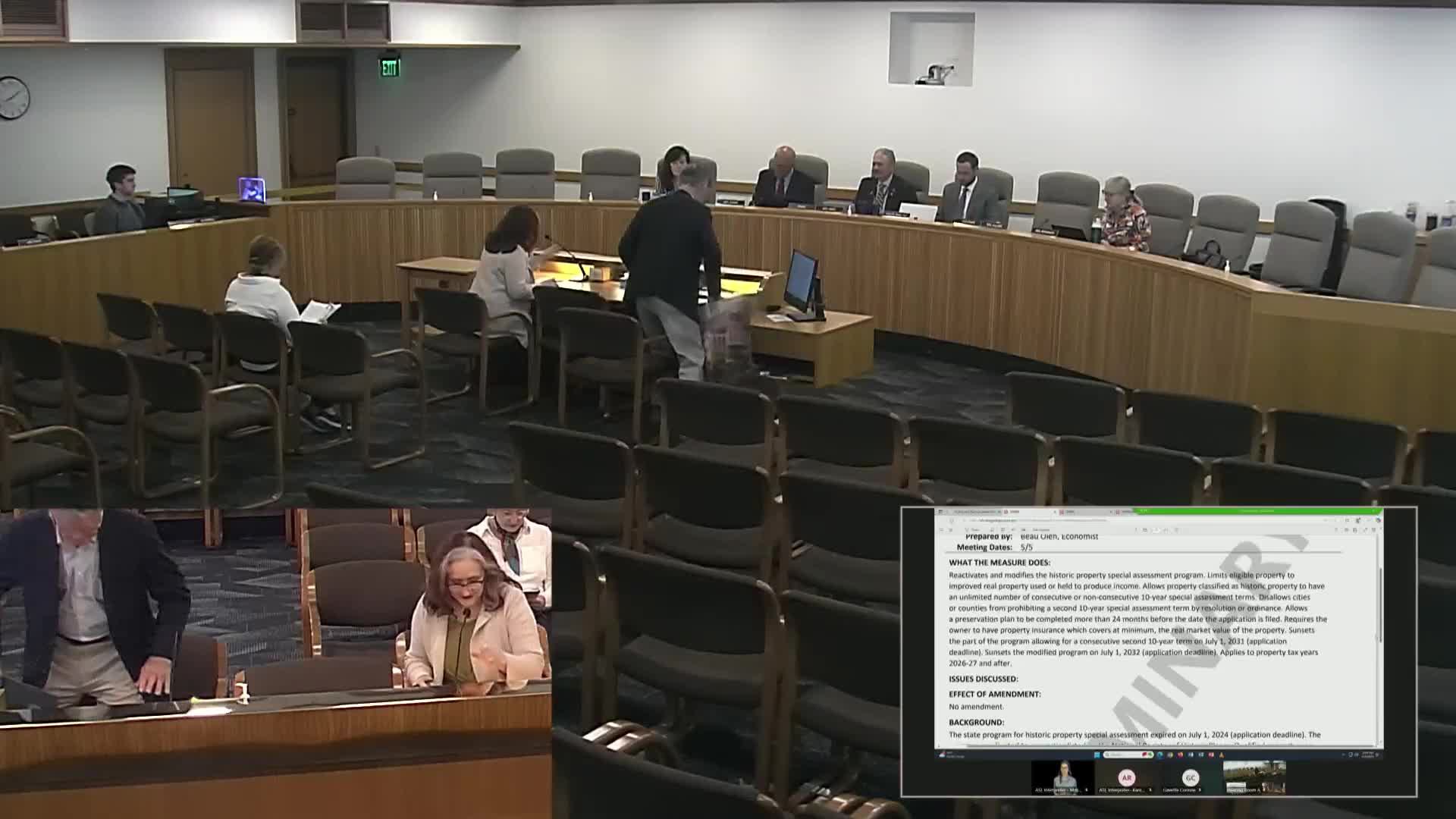Senate committee hears competing views as bill would revive historic property tax special assessment
Get AI-powered insights, summaries, and transcripts
Subscribe
Summary
Supporters told the Senate Committee on Finance and Revenue that reactivating the Historic Property Special Assessment Program would help downtown revitalization and preserve small historic buildings; an opponent warned the amended bill could be exploited by rental owners and estimated a modest but material revenue loss.
The Senate Committee on Finance and Revenue on May 5 heard testimony for House Bill 3,190A, which would reactivate and change Oregon’s Historic Property Special Assessment Program for commercial properties.
Supporters said the incentive would help preserve and reactivate older commercial buildings, enable upper‑floor housing and sustain downtown economies. “This incentive will be a viable part of helping our downtowns and commercial corridors to continue to be vital contributors to community prosperity,” said Nicole Posert, executive director of Restore Oregon.
Advocates described small, historic commercial buildings as cultural assets that face high repair costs, including seismic upgrades that do not boost rents. “Many of them require seismic upgrades and seismic upgrades don't really add to the rental value,” said John Russell, managing partner of Russell Fellows Properties, recounting why special treatment may be needed for small historic structures.
The Cultural Advocacy Coalition of Oregon also testified in support, saying HB 3,190A could leverage existing revitalization programs and spur housing production in underutilized upper floors.
A representative of Tax Fairness Oregon urged caution. Steve Wright told senators the amended bill expands eligibility and allowable expenditures in ways that could permit repeated exemptions for single‑family rental homes or multiunit rentals in historic districts. He characterized the changes as extensive and recommended close review, saying the bill could reduce state and local revenue. “The revenue impact of the proposed legislation for the 2025–27 biennium is $400,000 and increases to $1,000,000 per annum,” Wright testified.
Committee Chair Meek opened and closed the public hearing after witnesses testified; no formal committee action or vote was taken during the session. Senators asked clarification questions but did not advance the bill on the floor that day.
Why it matters: Supporters say the program provides a targeted financial tool to keep older commercial properties in active use and to encourage housing in downtown cores; opponents say the amended language broadens eligibility too far and could erode tax revenues and create inequities between rental owners and owner‑occupied properties.
The committee record shows proponents emphasizing cultural and economic benefits and at least one organized fiscal concern about expanded eligibility and long‑term revenue effects. No vote or formal referral was recorded at the May 5 hearing; the committee indicated the bill would remain under consideration.
